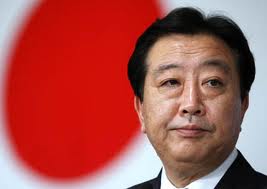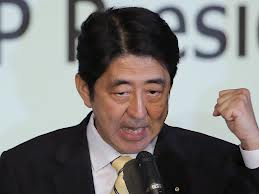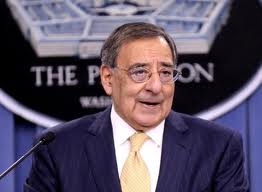Blog Archives
Island Dispute Foments Between China and Japan
An escalating disagreement between China and Japan over a string of islands in the East China Sea continues to spark protest on both sides.
Protests over the islands, known as the Senkaku by Japan and the Diaoyu by China, grew in Tokyo over the weekend. Japan has bought the islands
privately, but China says it is the rightful owner. Japan believes the group of these tiny islands lies just outside Chinese waters, but Beijing draws the border differently. The islands are also near rich fishing grounds and known to contain large oil deposits.
Earlier this past summer, in late July Chinese Foreign Ministry spokesman Hong Lei expressed China’s “grave concern” and “strong displeasure” over what he described as the “highly irresponsible remarks” made by Prime Minister Noda.
Japanese Prime minister Yoshihiko Noda said Japan was ready to send in the military if necessary to protect the disputed islands of Senkaku,

Prime Minister Yoshihiko Noda of the Democratic Party of Japan (DPJ) is facing dismal public poll numbers and increasing opposition within parliament all amidst the rising tensions with China.
known as the Diaoyu Islands in China. Yoshihiko Noda said,
“If a neighbouring country does something illegal in the vicinity of the Senkaku islands, we will, if need be, send the Self-Defense Forces and deal with this firmly as a nation. But preventive measures and crisis management, including diplomatic solutions, are paramount in order to prevent any such scenario from unfolding.”
Chinese Foreign Ministry spokesman Hong Lei also reaffirmed China’s
determination to safeguard its territorial sovereignty. He added that the Diaoyu Island and its affiliated islands have been part of China’s inherent territory since ancient times. Hong also took note of Japan’s willingness to solve the issue through diplomatic efforts, and called on them to make concrete efforts in light of over-all Japan-China relations.
Now today, Wednesday September 26, 2012 Japan‘s main opposition party selects a nationalist leader Shinzo Abe who is tipped by some to become prime minister by the

Analysts believe Abe, 59, could lead the L.D.P. to victory in an election that could be called as early as this November.
year’s end, raising fears of an increase in tensions with China and South Korea over rival territorial claims.
He has said he wants to water down a 1995 statement by the then socialist prime minister, Tomiichi Murayama, apologising for Japan’s wartime aggression, and to withdraw a 1993 apology for its use of Korean women as sex slaves before and during the war.
Hopefully this rhetoric charged island squabble will abate and these two Asian Powers can resolve this matter diplomatically. “I am concerned
that when these countries engage in provocations of one kind or another over these various islands, that it raises the possibility that a misjudgment on one side or the other could result in violence, and could result in conflict,” U.S. Defense Secretary Leon Panetta said this, when asked recently about a clash between Japan and China.
“We do not take a position on the ultimate sovereignty of these islands,” Kurt Campbell, assistant secretary of state for East Asian and Pacific Affairs, told a U.S. Senate Foreign Relations subcommittee.
“That is not in our strategic interest and clearly would undermine the peace and stability in the Asia-Pacific as a whole,” he added.
These uninhabited islets in the East China Sea are “clearly” covered by a 1960 security treaty obligating the United States to come to Japan’s aid if attacked, a top U.S. diplomat says.


